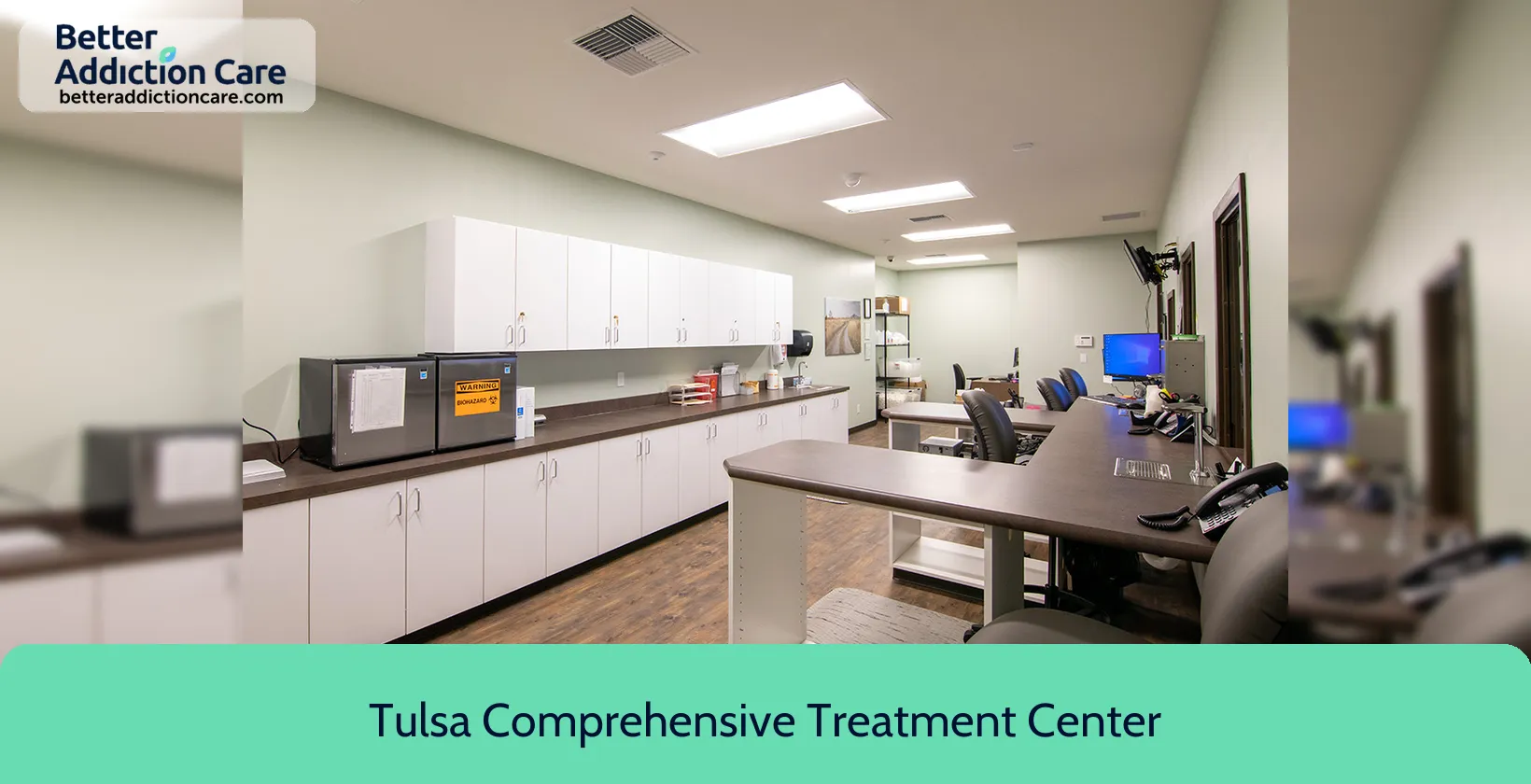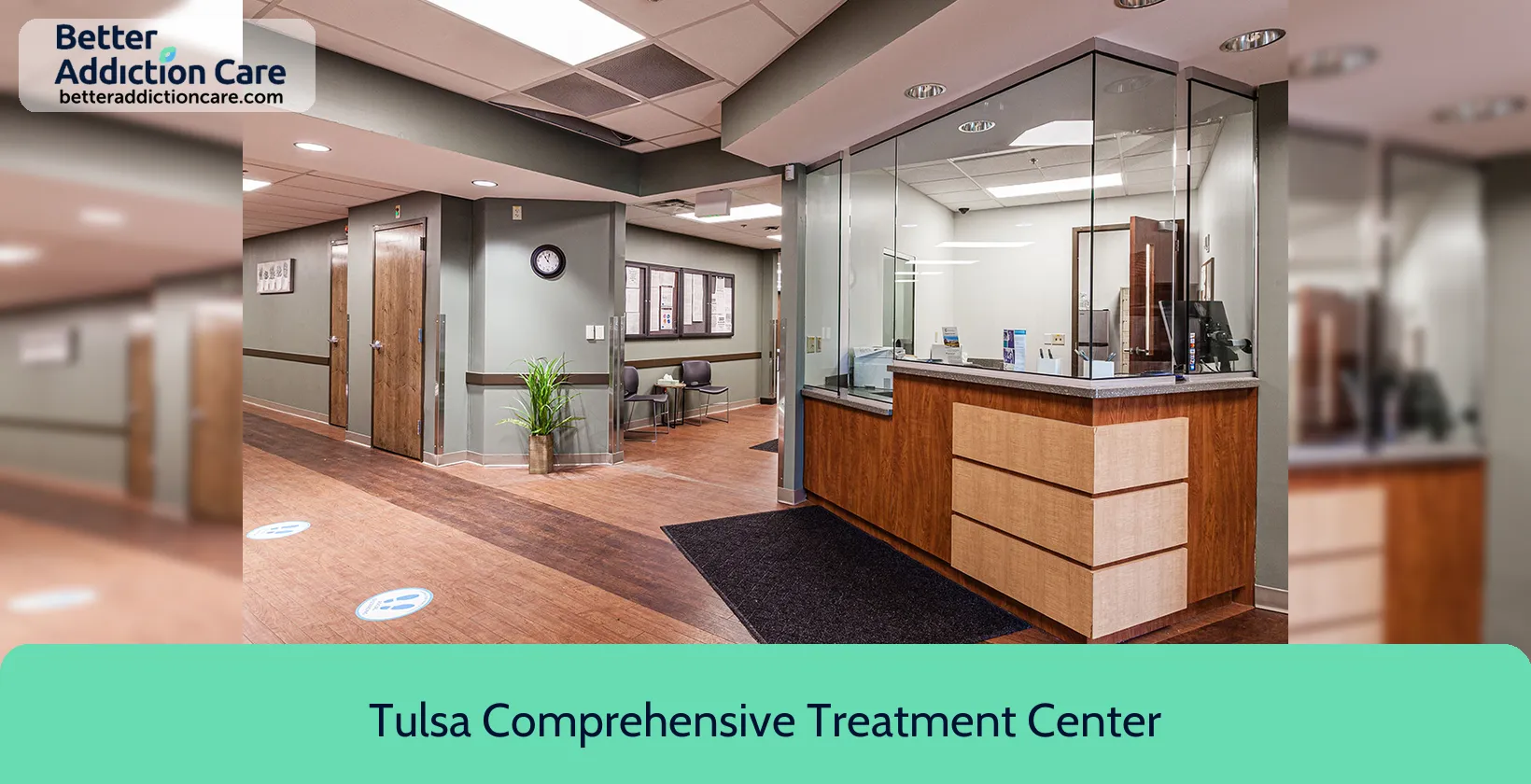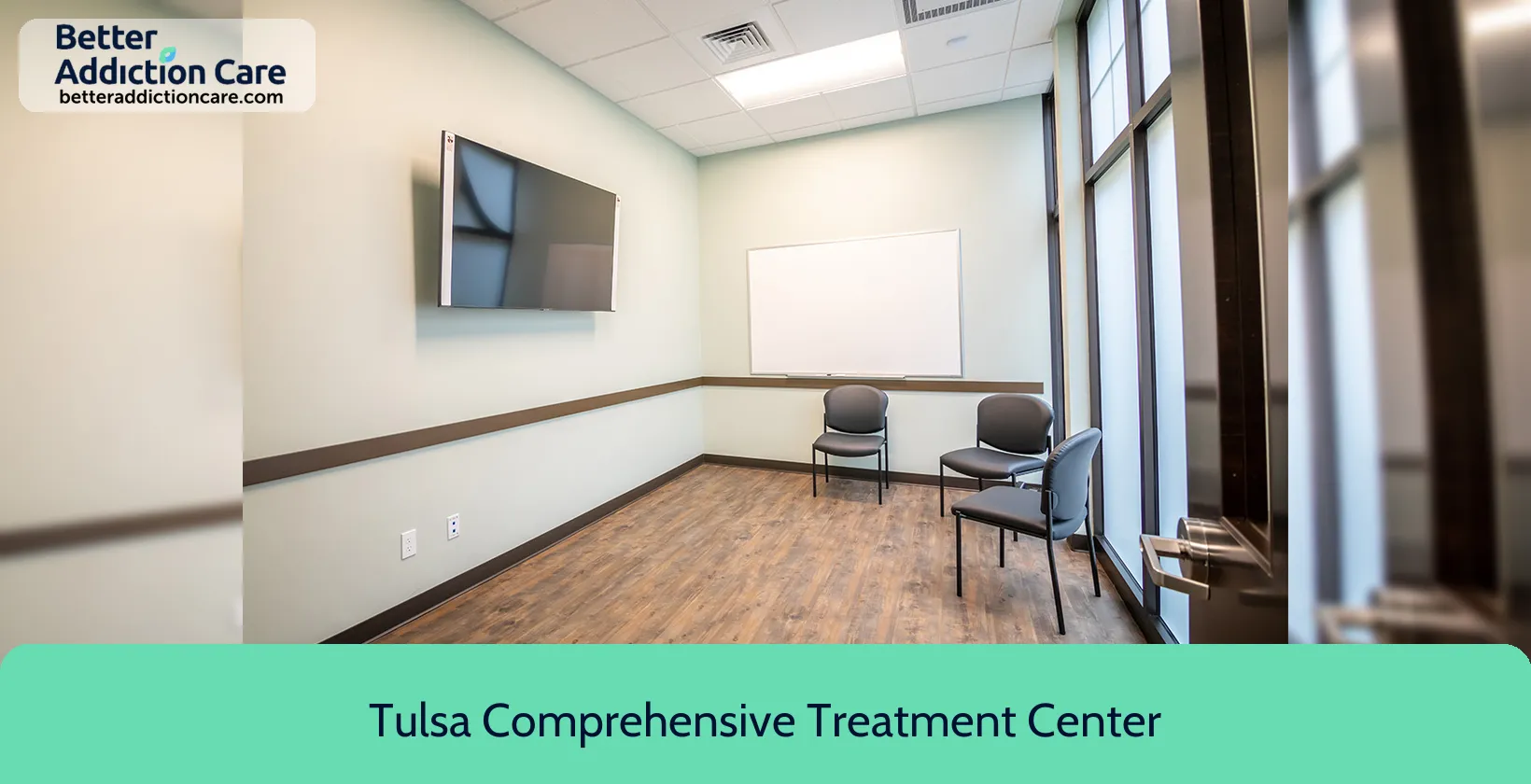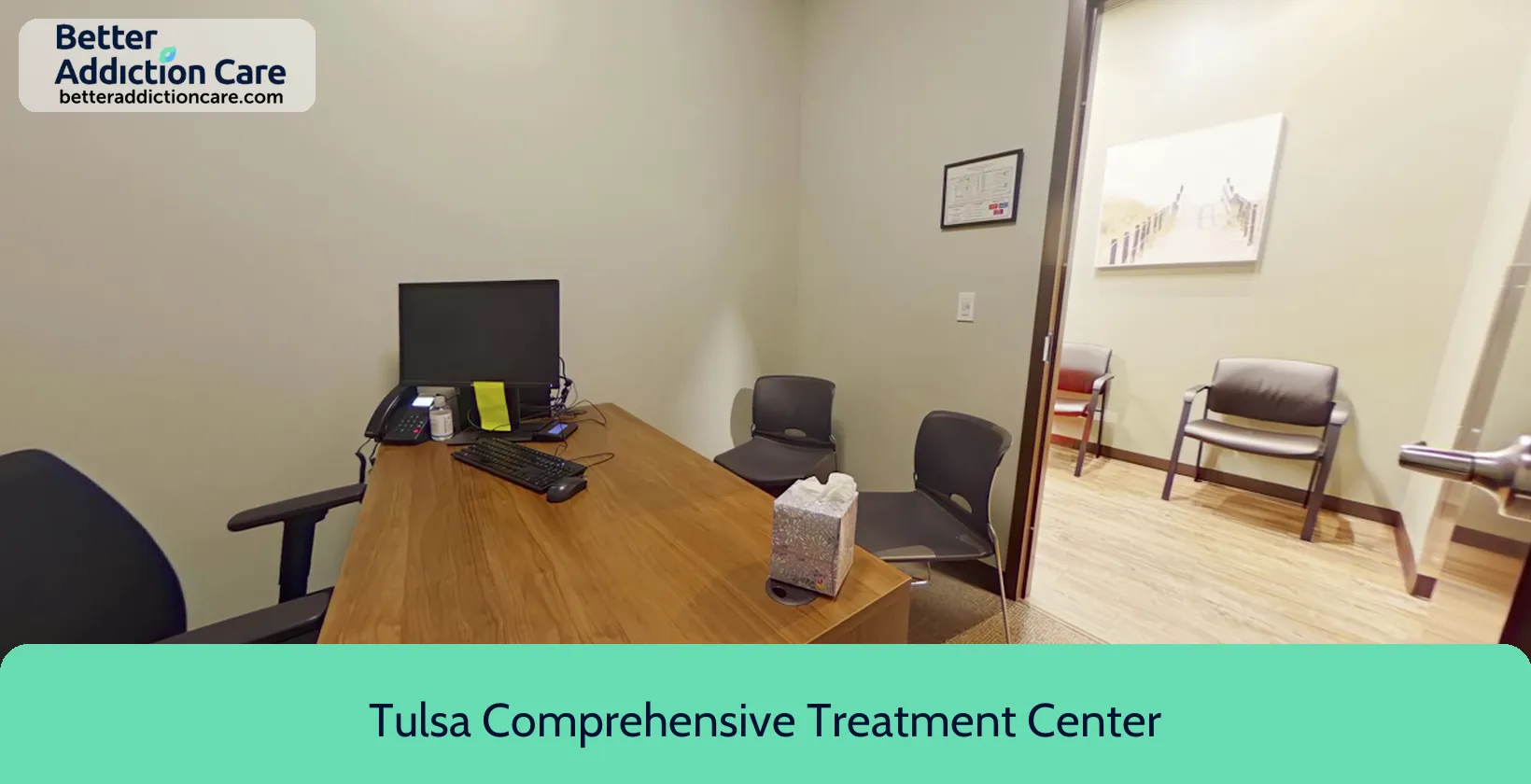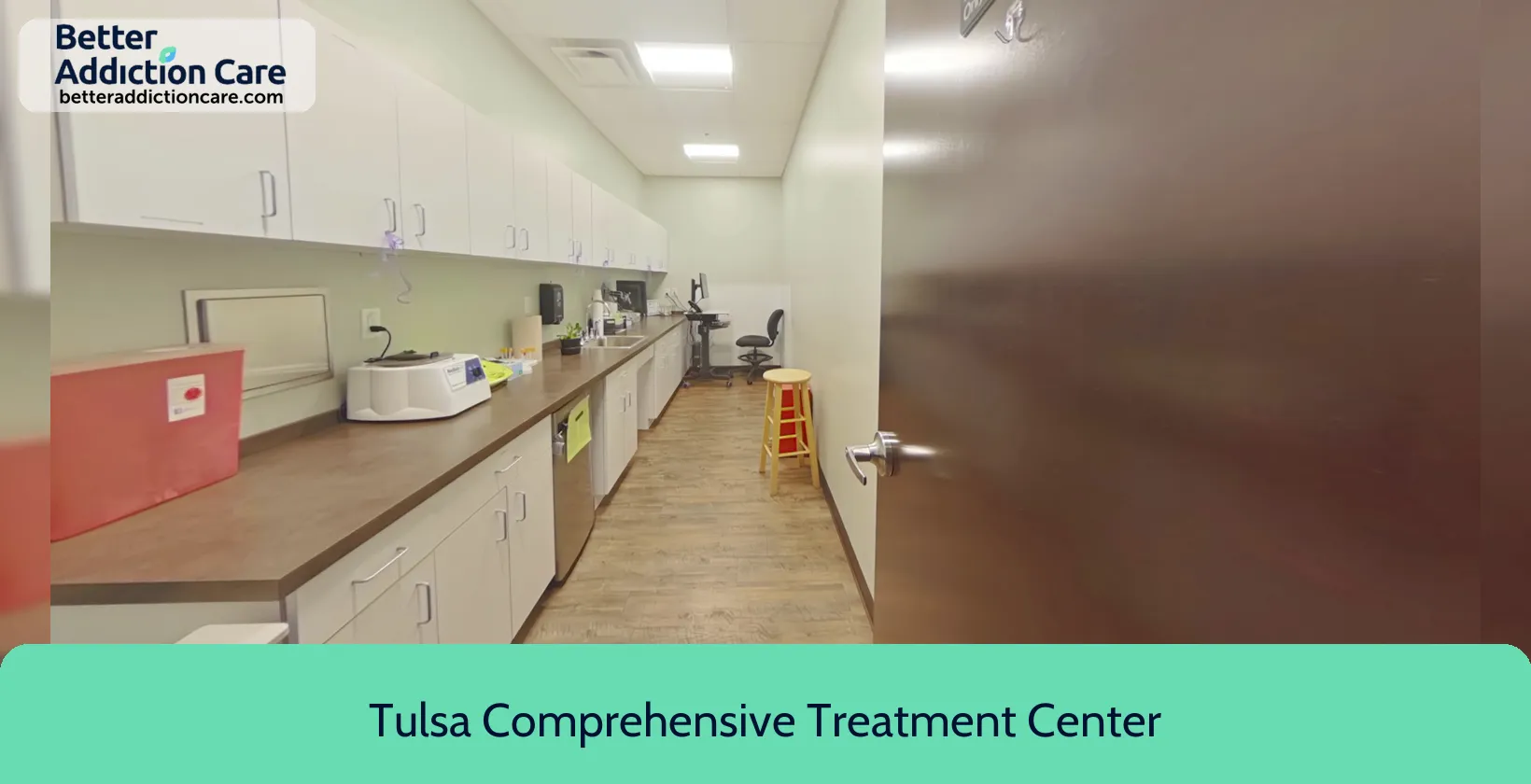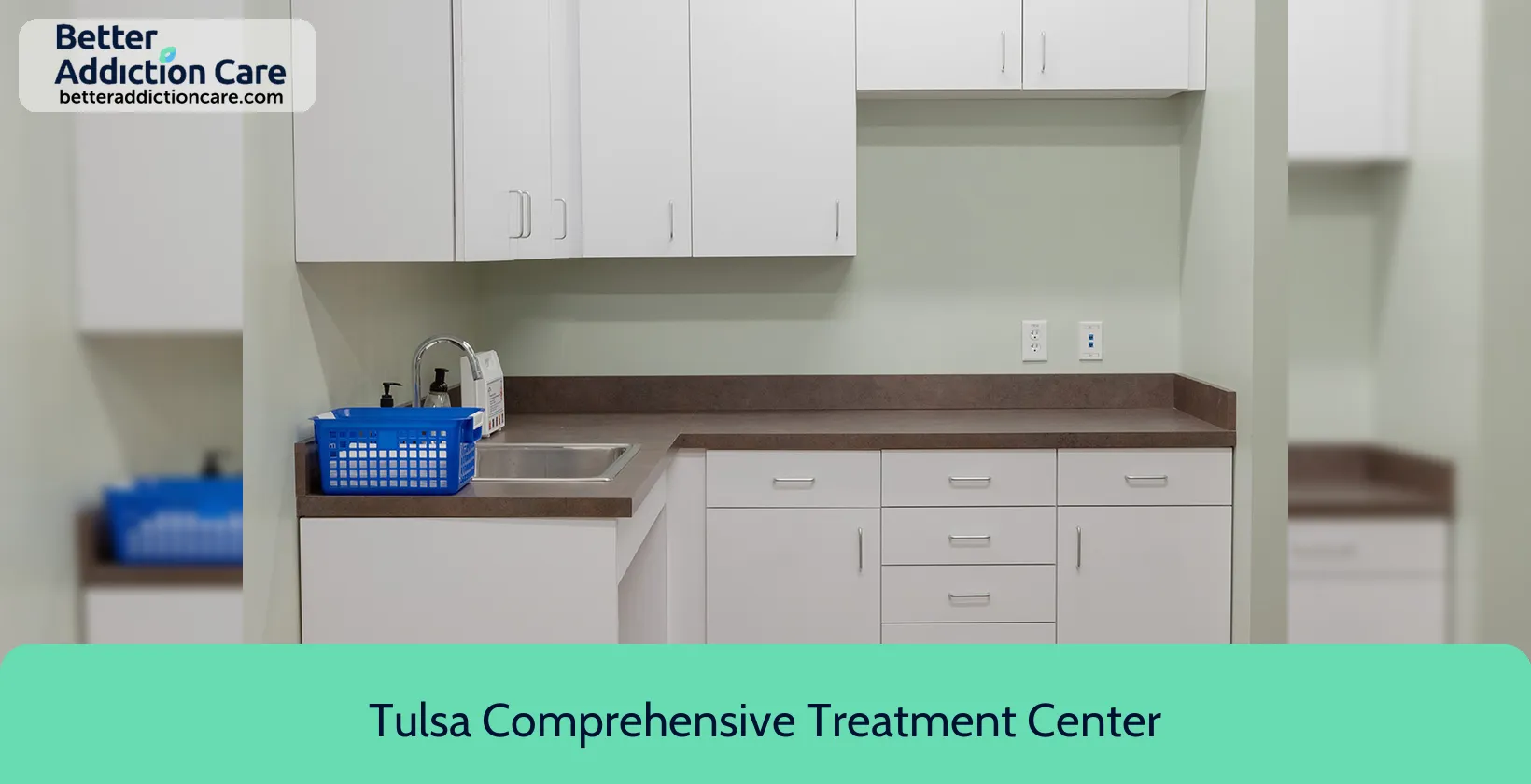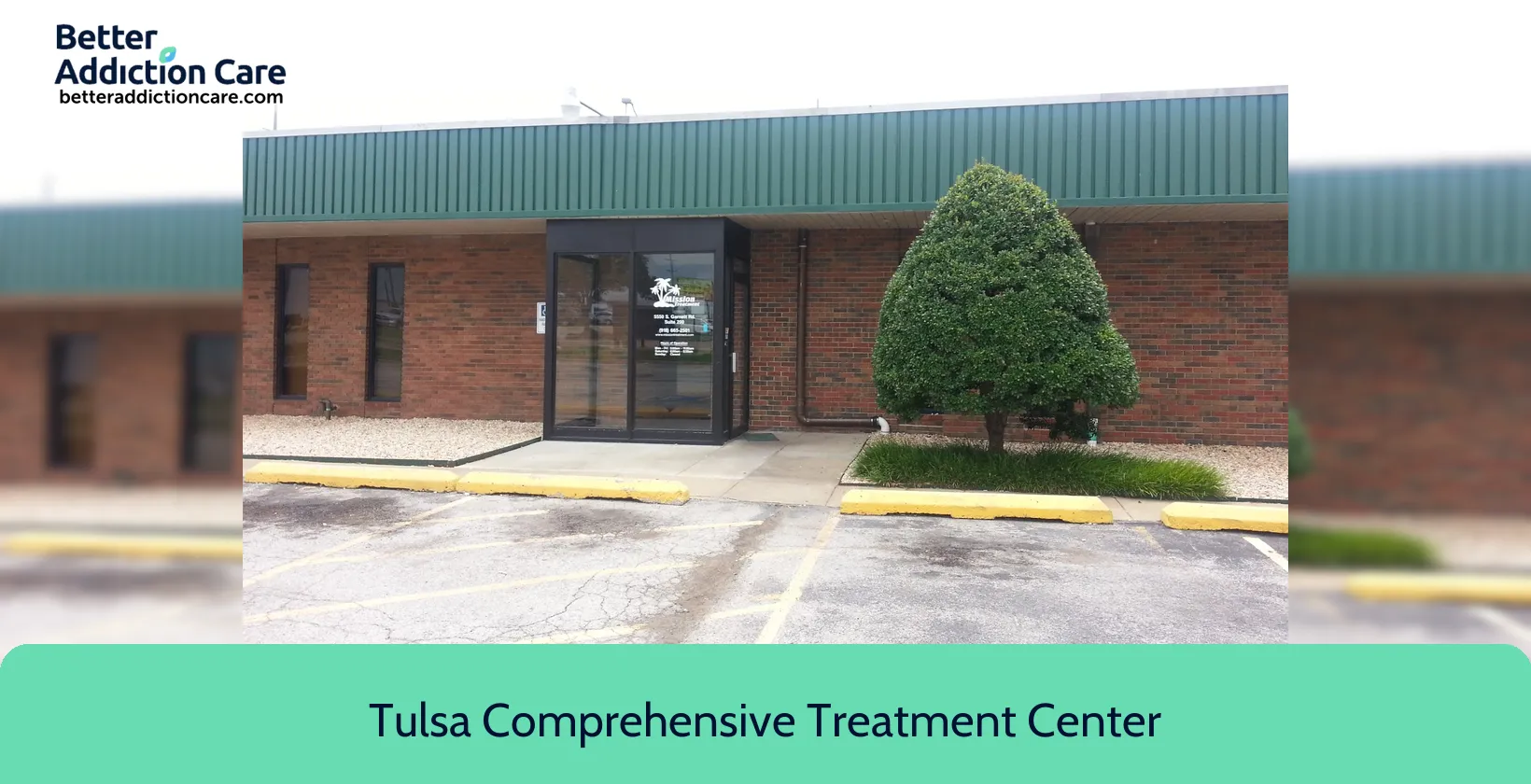Tulsa Comprehensive Treatment Center
Overview
Tulsa Comprehensive Treatment Center, situated in Tulsa, Oklahoma, specializes in outpatient treatment for adults aged 18 and older who are seeking assistance with opioid addiction and substance use disorders. The center provides a personalized approach to treatment, beginning with the development of an individualized treatment plan tailored to each client's specific needs.
The center employs a variety of therapeutic modalities to support recovery, including one-on-one individual therapy sessions. These sessions are designed to address the unique challenges faced by each client, fostering a comprehensive and effective recovery process.
Tulsa Comprehensive Treatment Center is dedicated to offering high-quality, evidence-based care in a supportive outpatient setting, ensuring that clients receive the necessary tools and support to achieve and maintain sobriety.
Tulsa Comprehensive Treatment Center at a Glance
Payment Options
- Cash or self-payment
- Medicaid
- Medicare
- Private health insurance
- Federal military insurance (e.g., TRICARE)
Assessments
- Screening for tobacco use
- Comprehensive substance use assessment
- Outreach to persons in the community
- Screening for substance use
- Complete medical history/physical exam
Age Groups
- Young adults
- Adults
- Seniors
Ancillary Services
- Case management service
- Suicide prevention services
- Mental health services
- Social skills development
- Opioid use disorder clients only
Highlights About Tulsa Comprehensive Treatment Center
7.16/10
With an overall rating of 7.16/10, this facility has following balanced range of services. Alcohol Rehabilitation: 8.00/10, Drug Rehab and Detox: 6.92/10, Insurance and Payments: 6.00/10, Treatment Options: 7.70/10.-
Alcohol Rehabilitation 8.00
-
Treatment Options 7.70
-
Drug Rehab and Detox 6.92
-
Insurance and Payments 6.00
Accreditations
State mental health department:
State mental health department accreditation refers to the process of evaluating and certifying the quality and standards of a state's mental health department, ensuring that it provides high-quality services and meets specific criteria for mental health care. The accreditation process is performed by a third-party organization and helps to improve the overall care and treatment of individuals with mental health conditions.
Drug Enforcement Agency (DEA):
DEA accreditation refers to the process by which a law enforcement agency is recognized by the Drug Enforcement Agency (DEA) as having met specific training, operational, and resource requirements necessary to participate in DEA-led drug enforcement efforts. This accreditation allows the agency to perform DEA-related tasks such as conducting investigations, executing federal search warrants, and participating in joint task forces.
SAMHSA certification for opioid treatment program (OTP):
Accreditation by the Substance Abuse and Mental Health Services Administration (SAMHSA) for Opioid Treatment Programs (OTPs) signifies that a program has met strict standards for providing high-quality care to individuals with opioid use disorders. It assures patients, families, and communities that the OTP follows evidence-based practices, employs qualified staff and maintains a safe and effective treatment environment. This accreditation reflects the program's commitment to addressing the opioid epidemic and promoting recovery.
Commission on Accreditation of Rehabilitation Facilities (CARF):

CARF accreditation is a prestigious recognition granted to rehabilitation and human service organizations. It signifies that an organization meets high-quality standards, having undergone a rigorous evaluation process. CARF accreditation boosts an organization's credibility and ensures top-notch care for individuals with disabilities, injuries, or healthcare needs.
Registration: 39088
Treatment At Tulsa Comprehensive Treatment Center
Treatment Conditions
- Alcoholism
- Mental health treatment
- Substance use treatment
- Co-occurring Disorders
- Opioid Treatement
Care Levels
- Outpatient
- Outpatient methadone/buprenorphine or naltrexone treatment
- Regular outpatient treatment
- Aftercare
Treatment Modalities
- Cognitive behavioral therapy
- Telemedicine/telehealth therapy
- Substance use disorder counseling
- Trauma-related counseling
- Smoking/vaping/tobacco cessation counseling
Ancillary Services
Additional Services
- Pharmacotherapies administered during treatment
- Housing services
- Breathalyzer or blood alcohol testing
Special Programs
- Clients with co-occurring mental and substance use disorders
- Veterans
- Pregnant/postpartum women
- Clients who have experienced trauma
- Clients who have experienced sexual abuse
Get Help Now
Common Questions About Tulsa Comprehensive Treatment Center
Contact Information
Other Facilities in Tulsa

7.16

7.23

7.00
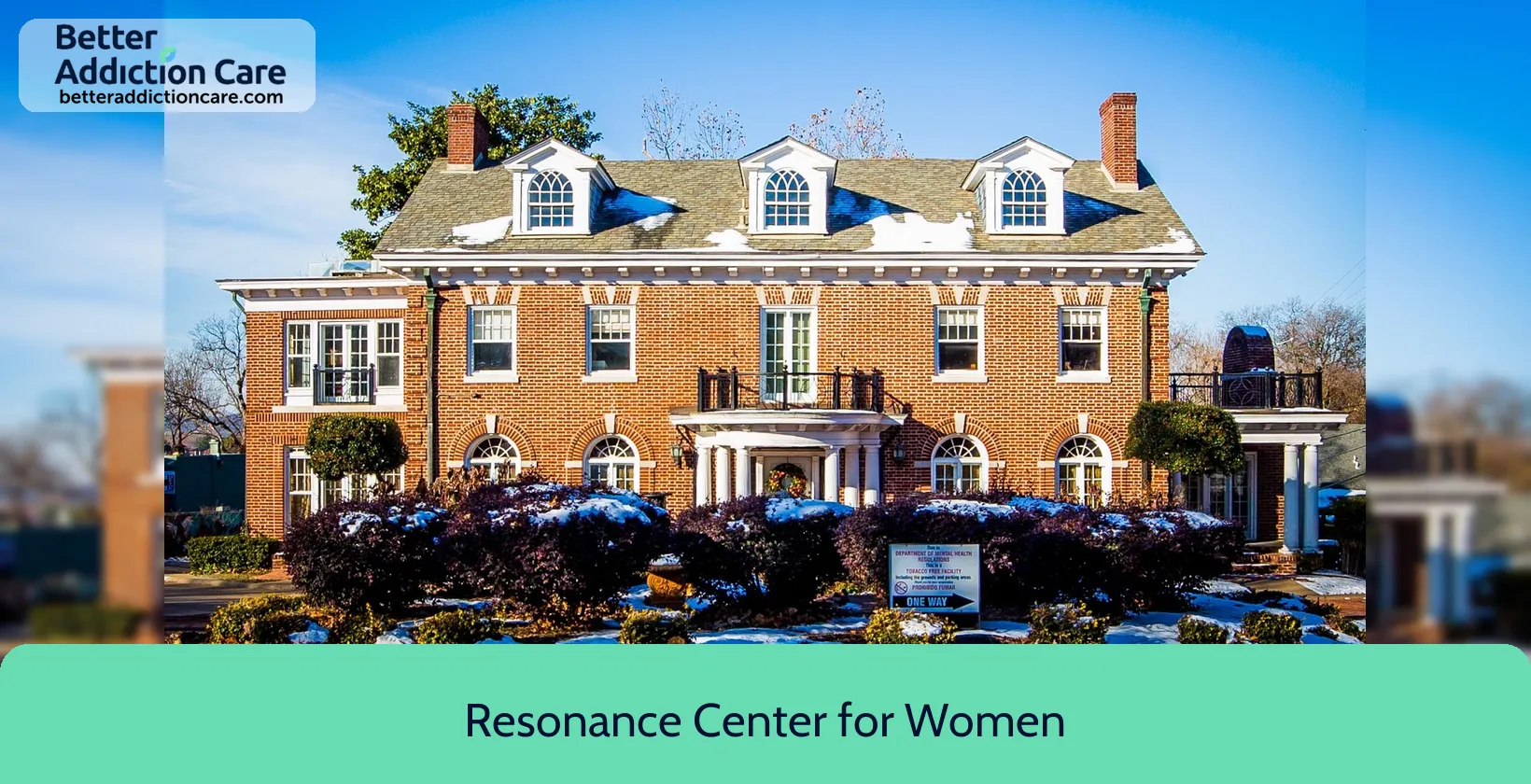
7.00
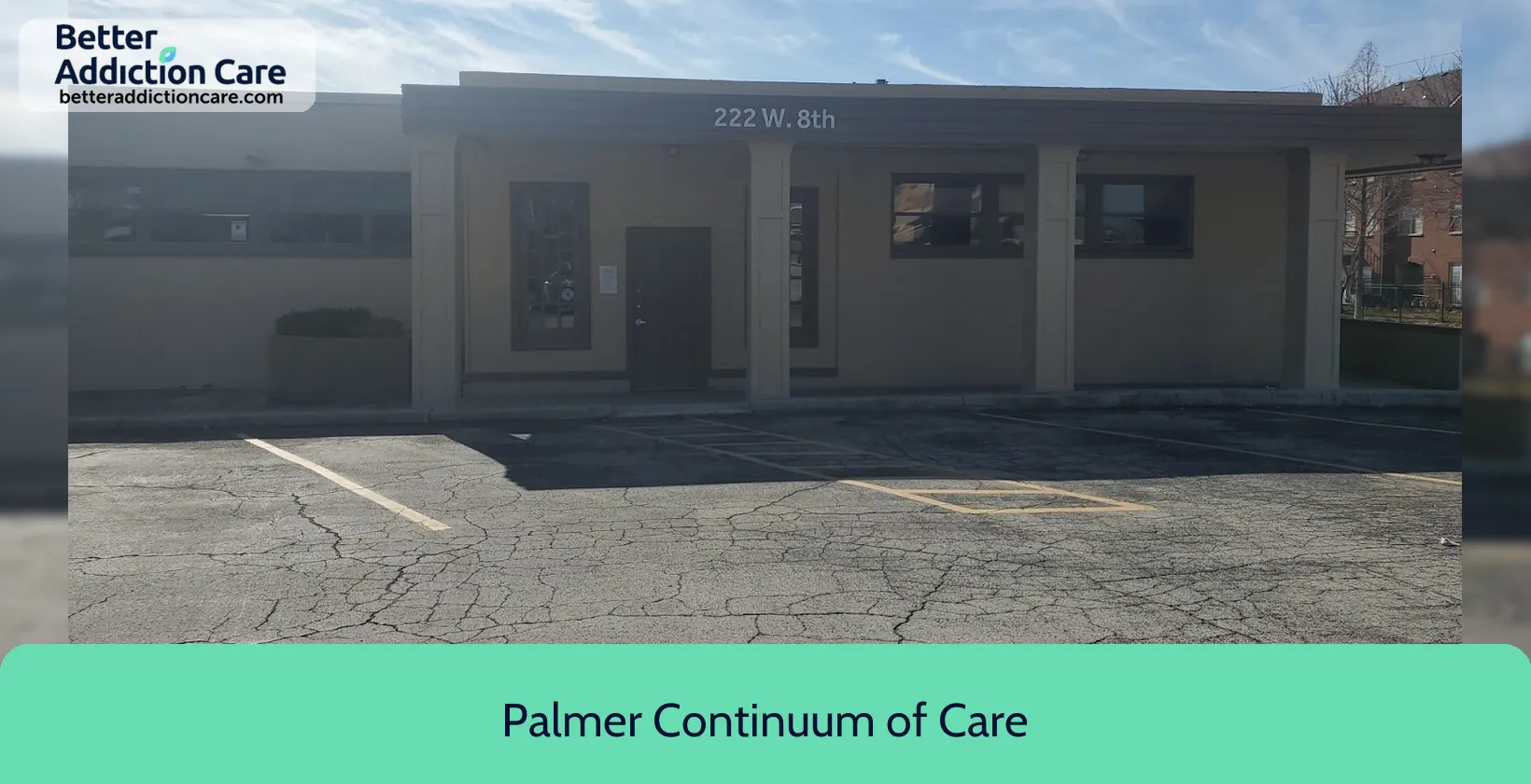
6.80

6.65
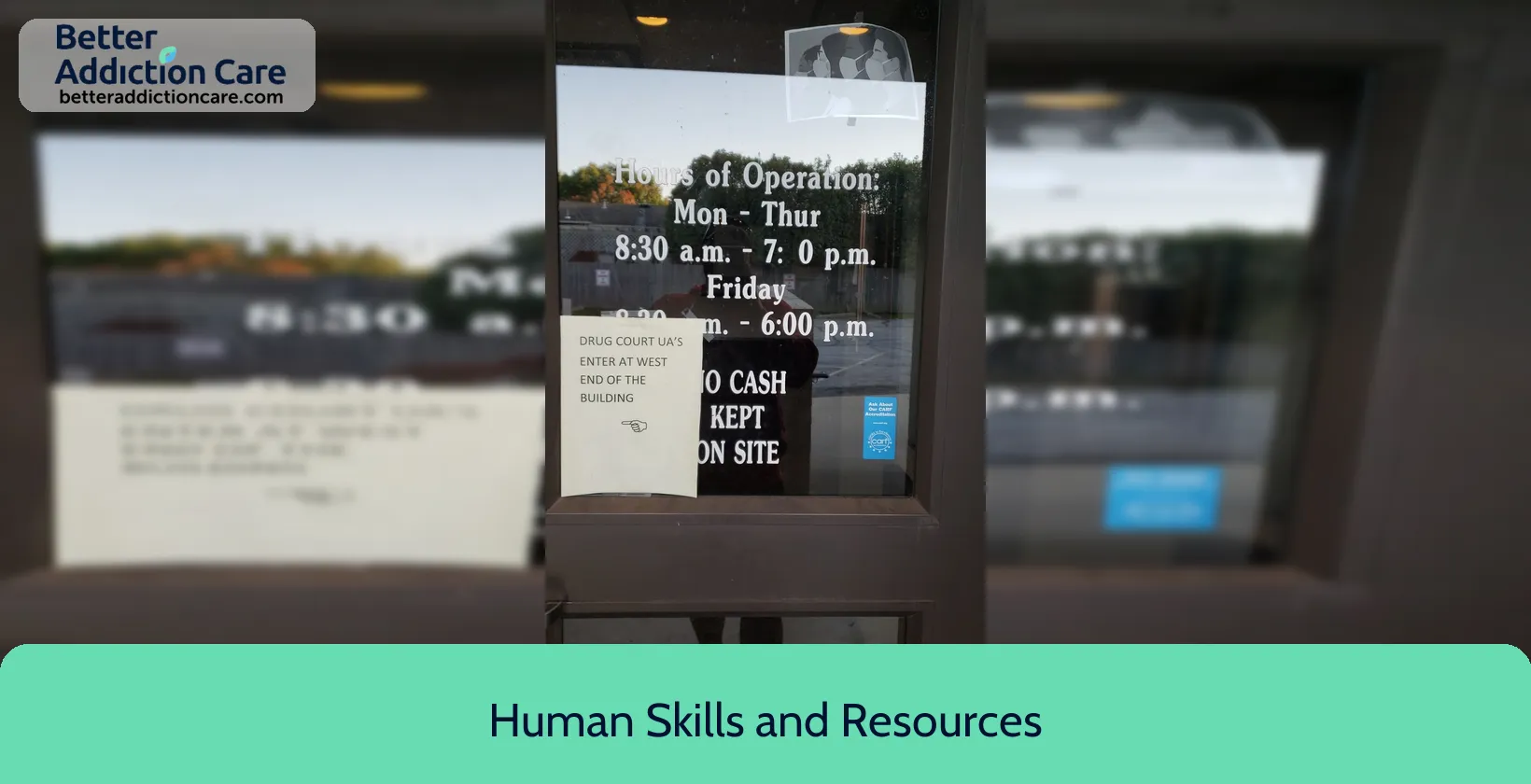
7.25
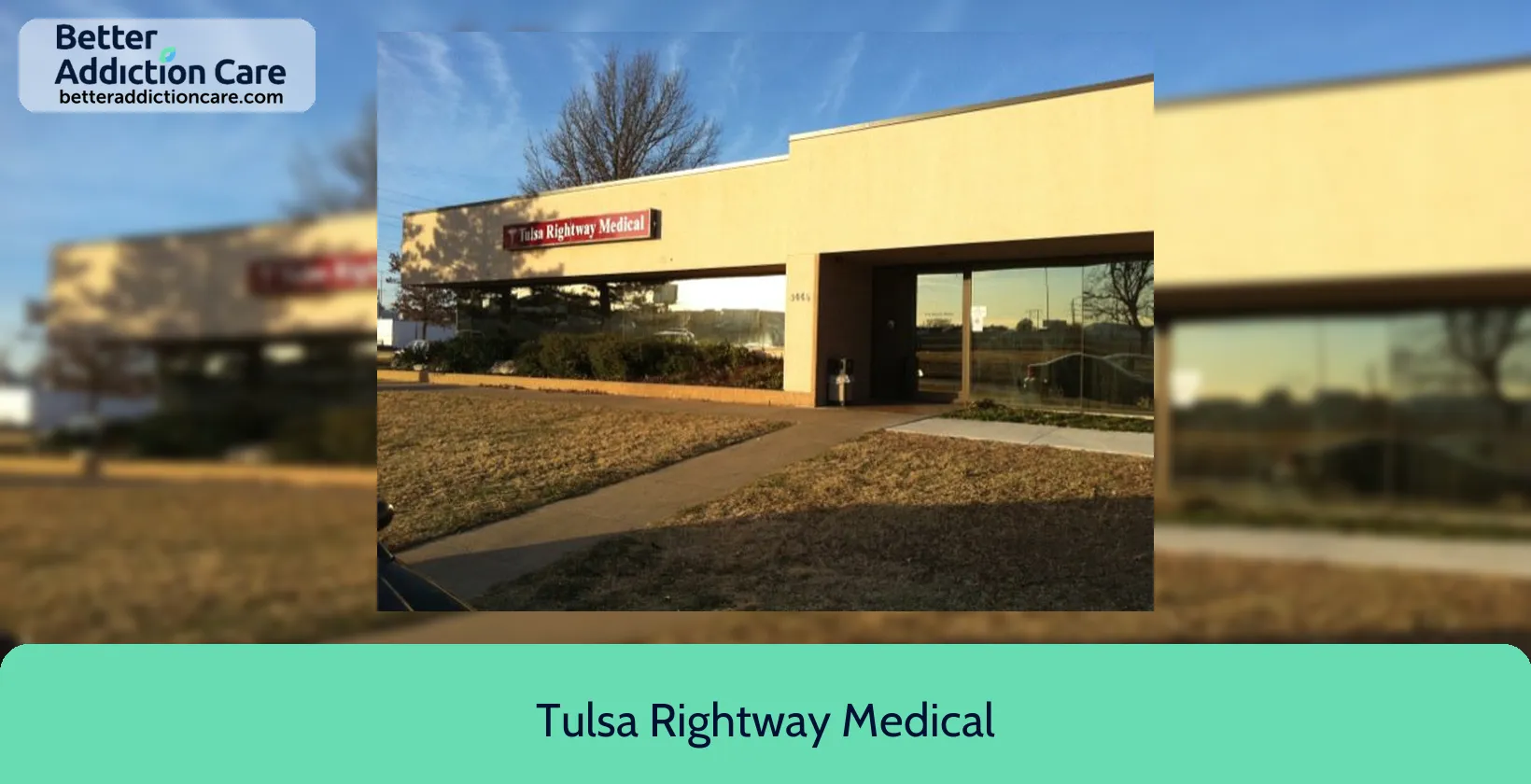
6.99
DISCLAIMER: The facility name, logo and brand are the property and registered trademarks of Tulsa Rightway Medical, and are being used for identification and informational purposes only. Use of these names, logos and brands shall not imply endorsement. BetterAddictionCare.com is not affiliated with or sponsored by Tulsa Rightway Medical.
